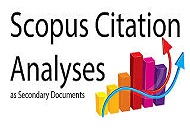Meningkatkan Kejujuran Akademik Mahasiswa Melalui Konseling Kelompok Values Clarification
DOI:
https://doi.org/10.33394/jk.v6i1.2313Keywords:
Group Counseling Values Clarification, Academic HonestyAbstract
The purpose of this study is to emphasize the effectiveness of group calrification counseling in modeling techniques for the academic honesty of students. This study uses a repetead measure experimental design with a pretest and multiple posttest design. The subjects in this study were 12 students in one private university, the city of Mataram. Data were collected using an academic honesty scale. Data analysis used repeated measure ANAVA statistics. The results of this study reveal that group counseling values clarification with modeling techniques effective to improve student academic honesty. As for the level of academic honesty of students viewed from gender there is no significant difference.Â
References
Albrecht, W.S., et.al. (2012). Fraud Examination (Fourth Edition). South Western: Cengage Learning.
Ashworth, P. & Bannister, P. (1997). Guilty in whose eyes? University students’ perceptions of cheating and plagiarism in academic work and assessment. Studies in Higher Education, 22, 187.
Auer, N. J., & Kruper, E. M. (2001). Mouse click plagiarism: The role of technology in plagiarism and the librarian’s role in combating it. Library Trends. 49: 415-432. Doi: http://www.ideals.illinois.edu
Davis, S.F., Grover, C.A., Becker, A.H., & McGregor, L.N. (1992). Academic dishonesty: Prevalence, determinants, techniques, and punishments. Teaching of Psychology. 19: 16-20.
Easterbrooks, S.R., & Scheetz, N.A. (2004). Applying critical thinking skills to character education and values clarification with students who are deaf or hard of hearing. Journal American Annals of the Deaf. 149: 255-263. Doi: https://www.jstor.org/staple/26234670
Gallant, T. (2008a). A new approach to academic integrity: The teaching and learning strategy. ASHE Higher Education Report. 33: 87-103. Doi: http://web.ebscohost.com
Gunawan, I.M.S., Mungin, E.W., Purwanto, E., & Sunawan, S. (2019). Group counseling of values clarification to increase middle school students’ empathy. Psicologia Educativa, 25: 169-174. Doi: https://doi.org/10.5093/psed2019a5
Hard, S.F., Conway, J.M., & Moran, A.C. (2006). Faculty and college students’ beliefs about the frequency of student academic misconduct. The journal of Higher Education, 77: 1058-1080. http://dx.doi.org/10.1080/00221546.2006.11778956
Jordan, A. E. (2001). College student cheating: The role of motivation, perceived norms, attitudes, and knowledge of institutional policy. Ethics & Behavior, 11(3), 233-247. Doi: http://dx.doi.org/10.1207/S15327019EB11033
Katz, R.C., Santman, J., & Lonero, P. (1994). Findings on the revised morally debatable behavior scale. The Journal of Psychology: Interdisciplinary and Applied. 128: 15-21. Doi: http://dx.doi.org/10.1080/00223980.1994.9712707
Koellhoffer, T.T. (2009). Character education: Being fair and honest. New York: Infobase Publishing.
Mplei, M.R., & Botma, Y. (2015). Abortion-related services: Value clarification through ‘difficult dialogues’ strategies. Journal Education, Citizenship and Social Justice. 10: 278-288. Doi: https://doi/abs/10.1177/1746197915607281
Nucci, L.P., & Narvaez, D. (2009). Handbook of moral and character education. New York: Routledge.
Oliha, J., & Audu, V. (2015). Effectiveness of value clarification and self-management techniques in reducing dropout tendency among secondary schools students in Edo State. European Journal of Educational and Development Psychology. 3: 1-13. Doi: http://www.eajournals.org
Ryan, G., Bonnano, H., Krass, I., & Schouller, K. (2009). Undergraduate and postgraduate pharmacy students’ perceptions of plagiarism and academic honesty. American Journal of Pharmaceutical Education, 73: 1-8. Doi: https://www.ajpe.org/doi/full/10.5688/aj7306105
Staats, S., Hupp, J.M., & Hagley, A.M. (2008). Honesty and heroes: A positive psychology view of heroism and academic honesty. The Journal of Psychology, 142: 357-372. Doi: http://dx.doi.org/10.3200/JRLP.142.4.357-372
Spaulding, M. (2009). Perceptions of academic Honesty in online vs face to face classrooms. Journal of Interactive Online Learning, 8: 183-198. Doi: www.ncolr.org/jiol
Symaco, L. P. & Marcelo, E. (2003). Faculty perception on student academic honesty. College Student Journal, 37: 327-333.
Wibowo, M.E. (2005). Konseling Kelompok Perkembangan. Semarang: UNNES Press.
Downloads
Published
How to Cite
Issue
Section
Citation Check
License
License and Publishing AgreementIn submitting the manuscript to the journal, the authors certify that:
- They are authorized by their co-authors to enter into these arrangements.
- The work described has not been formally published before, except in the form of an abstract or as part of a published lecture, review, thesis, or overlay journal.
- That it is not under consideration for publication elsewhere,
- That its publication has been approved by all the author(s) and by the responsible authorities – tacitly or explicitly – of the institutes where the work has been carried out.
- They secure the right to reproduce any material that has already been published or copyrighted elsewhere.
- They agree to the following license and publishing agreement.
Authors who publish with JK agree to the following terms:
- Authors retain copyright and grant the journal right of first publication with the work simultaneously licensed under a Creative Commons Attribution License (CC BY-SA 4.0) that allows others to share the work with an acknowledgment of the work's authorship and initial publication in this journal.Â
- Authors are able to enter into separate, additional contractual arrangements for the non-exclusive distribution of the journal's published version of the work (e.g., post it to an institutional repository or publish it in a book), with an acknowledgment of its initial publication in this journal.
- Authors are permitted and encouraged to post their work online (e.g., in institutional repositories or on their website) prior to and during the submission process, as it can lead to productive exchanges, as well as earlier and greater citation of published work.
- Open Data Commons Attribution License, http://www.opendatacommons.org/licenses/by/1.0/ (default)

This work is licensed under a Creative Commons Attribution-ShareAlike 4.0 International License.








